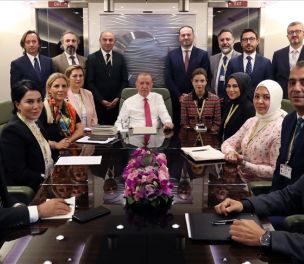* Photo: YahooNews
Click to read the article in Turkish (1) (2) (3) (4) / Kurdish
President and ruling Justice and Development Party (AKP) Chair Recep Tayyip Erdoğan targeted the 10 ambassadors who had called for jailed businessperson and rights defender Osman Kavala's release.
In a speech in Eskişehir on Saturday (October 23), Erdoğan said, "I gave the necessary instructions to our minister of foreign affairs. I told him what to do. I said that you will deal with these 10 ambassadors being declared personae non gratae as soon as possible." He also added that the envoys should leave the country if they do not understand Turkey.
Persona non grata literally means "an unwelcome person." By declaring a person non grata, the receiving state can unilaterally terminate a diplomat's functions in its territory. It is considered the most serious form of condemnation of a state against a diplomat in its territory.
Shortly after Erdoğan announced his decision to the public, European Parliament President David Sassoli denounced it on Twitter:
"The expulsion of ten ambassadors is a sign of the authoritarian drift of the Turkish government. We will not be intimidated.
"Freedom for Osman Kavala."
The expulsion of ten ambassadors is a sign of the authoritarian drift of the Turkish government. We will not be intimidated.
— David Sassoli (@EP_President) October 23, 2021
Freedom for Osman Kavala.
The Free Democratic Party (FDP) and the Greens Party in Germany also made a statement about the issue. FDP Spokesperson for Foreign Affairs Alexander Lambsdorff tweeted, "The possible expulsion of ten ambassadors, including the representatives of Germany and many of Turkey's NATO allies, would be imprudent, undiplomatic and would weaken the cohesion of the alliance. Erdoğan cannot be interested in that."
Die mögliche #Ausweisung von zehn #Botschafter n, darunter die Vertreter von #Deutschland und vieler #NATO-Verbündeter der #Türkei, wäre unklug, undiplomatisch und würde den Zusammenhalt des Bündnisses schwächen. Daran kann #Erdogan kein Interesse haben. #PersonaNonGrata https://t.co/NQOtf3kWJf
— Alexander Lambsdorff (@Lambsdorff) October 23, 2021
Statement by Open Society Foundations
On the other hand, the Open Society Foundations also released a written statement about Erdoğan calling Kavala "a leftover of Soros."
Titled "Open Society Urges Turkish President to Stop Efforts to Obscure the Facts in Kavala Case," the statement briefly read:
"The Open Society Foundations urged the president of Turkey today to stop invoking George Soros's name in an effort to obscure the facts around the case of Osman Kavala, the businessman and philanthropist who has spent four years in prison there on bogus charges.
"'President Erdogan's insulting language about George Soros, a man his government welcomed to Istanbul, is an effort to distract from the simple fact that Osman Kavala is innocent and should be released,' said Mark Malloch-Brown, president of the Open Society Foundations.
"'These toxic comments from the president about a case currently before the courts are one more assault on Turkey's supposedly independent legal system. We urge the Turkish authorities to free Osman now.'
"Before its 2018 closure, Open Society's Turkish foundation worked with a wide range of local partners.
"The foundation was closely involved in supporting Turkey in the long, and currently stalled, EU accession process. Its other priorities included strengthening education standards protecting women's rights, combatting discrimination, and helping with the response to the Syrian refugee crisis.
"All the activities of the Open Society Foundations in Turkey were regularly audited and approved by both the Ministry of the Interior and the General Directorate of Foundations."
What happened?
October 18, 2021 marked the fourth year since the businessperson and rights defender Osman Kavala was detained in Turkey.
On this occasion, the embassies of 10 countries released a written statement calling for his release by specifically referring to the European Court of Human Rights (ECtHR) rulings about his case.
Shortly after this statement was shared with the public, some ministers and ruling Justice and Development Party (AKP) politicians denounced it. The state-run Anadolu Agency (AA) also reported that the ambassadors of the 10 countries had been summoned to the Ministry of Foreign Affairs of Turkey over their statement calling for Osman Kavala's release.
President and AKP Chair Recep Tayyip Erdoğan also slammed the ambassadors of 10 countries, including the US, Germany and France, who had called for the release of Osman Kavala.
"Why do these 10 ambassadors make this statement? Those who defend this leftover of [George] Soros are striving to get him released," Erdoğan said upon his visit from Africa and briefly added: " "I told our foreign minister that we can't have the luxury to host those in our country. [...] Is it your place to teach lessons to Turkey? Who are you?"
"The European Court of Human Rights (ECtHR) gave a decision. They want to convict Turkey regarding this Soros leftover," Erdoğan remarked. "Do you release bandits, killers or terrorists in your country?"
In response to these remarks, Osman Kavala sent a message from prison and briefly said, "Under these circumstances, as there has remained no possibility for a fair trial, I believe that my participation in the hearings and presenting a defense would now be meaningless."
In another speech on October 23, Erdoğan said that "he had ordered 10 ambassadors to be declared persona non grata."
"I gave the necessary instructions to our minister of foreign affairs. I told him what to do. I said that you will deal with these 10 ambassadors being declared persona non grata as soon as possible," Erdoğan said.
President and AKP Chair Erdoğan added that "the ambassadors should leave the country if they do not understand Turkey."
A brief summary of Osman Kavala's arrest17 October 2017: Osman Kavala was detained. 1 November 2017: Kavala was ordered arrest on the charges of 'attempting to overthrow the government or to prevent it from exercising its functions' (Article 312 of the TCC) and 'attempting to overthrow the constitutional order through force and violence' (Article 309 of the TCC). 24 December 2018: The investigation files under Article 309 and 312 of the TCC were separated. 19 February 2019: The first indictment against Kavala was issued under Article 312 of the TCC 16 months after he was arrested. 11 October 2019: A release order was issued in favor of Kavala on the charge under Article 309 of the TCC. 10 December 2019: The ECtHR ruled that Kavala's detention constituted a violation of human rights and that he should be released immediately. 18 February 2020: A decision of acquittal was issued in the trial heard under Article 312 of the TCC. 19 February 2020: After the decision of acquittal, Kavala was not released but was arrested again on the charge under Article 309 of the TCC. 9 March 2020: Kavala was ordered arrest under Article 328 of the TCC. 20 March 2020: The second release order was issued in favor of Kavala under Article 309 of the TCC. However, his detention on the charge of espionage under Article 328 of the TCC continued. 3 September 2020: The Committee of Ministers of the Council of Europe, which oversees the execution of the judgments of the ECtHR, ruled that the judgment of the ECtHR should be executed and that Kavala should be released immediately. 29 September 2020: The Constitutional Court of the Republic of Turkey decided to examine the application of Kavala regarding his unlawful detention. However, it postponed the examination as the second indictment including the charges under Articles 309 and 328 (espionage) of the TCC was submitted to the court on the same day. 29 September 2020: In the second meeting in which this matter was discussed, the Committee of Ministers of the Council of Europe ruled that an interim decision should be drafted to be issued in the event that the judgment of the ECtHR is not executed. 3 December 2020: The Committee of Ministers of the Council of Europe issued an interim decision that Kavala should be released immediately and that the Constitutional Court should examine the file in accordance with the judgment of the ECtHR without further delay. 15 December 2020: The Constitutional Court decided to examine the application regarding the unlawful detention and ruled that the file should be referred to the General Assembly of the Constitutional Court. 18 December 2020: The 36th Assize Court ruled that the detention shall continue. The second hearing was scheduled on 5 February. 29 December 2020: The Constitutional Court ruled with 8 to 7 votes that the decision of Kavala did not constitute any violation of right. The reasoned judgment included the strongly dissenting opinions of the judges who voted that the detention constituted a violation of rights. 22 January 2021: The Appellate Court overturned the decision of acquittal in the Gezi trial. It ruled that the file concerning this trial shall be examined together with the files under Articles 309 and 328 of the TCC. 28 January 2021: After the decision of acquittal was overturned, the 30th Assize Court issued a preliminary proceedings report and scheduled the trial concerning the consolidated files on 21 May 2021. 5 February 2021: In the trial heard in the 36th Assize Court, the Court ruled that Kavala's trial shall be consolidated with the Gezi Trial, which will be heard again in the 30th Assize Court under Article 312 of the TCC, and that the detention of Kavala on the charges of espionage under Article 328 of the TCC shall continue. 30 April 2021: As a result of its examination of the detention, the 30th Assize Court ruled that the detention of Kavala shall continue. 12 May 2021: In its weekly meeting of 12 May 2021, the Committee of Ministers of the Council of Europe reviewed Kavala's file and expressed their great concern that Turkish authorities and courts did not take the necessary steps to end Kavala's continued detention against the judgment of the ECtHR. The Committee urged the member states to bring up the continued detention and immediate release of Kavala during their meetings with Turkish authorities. It pointed out that the detention of Kavala would be reviewed again by the 30th Assize Court on 21 May 2021, and urged the authorities to take all the necessary steps to ensure the release of Kavala. CLICK - Committee of Ministers of Council of Europe: Release Demirtaş and Kavala |
(RT/NÖ/SD)




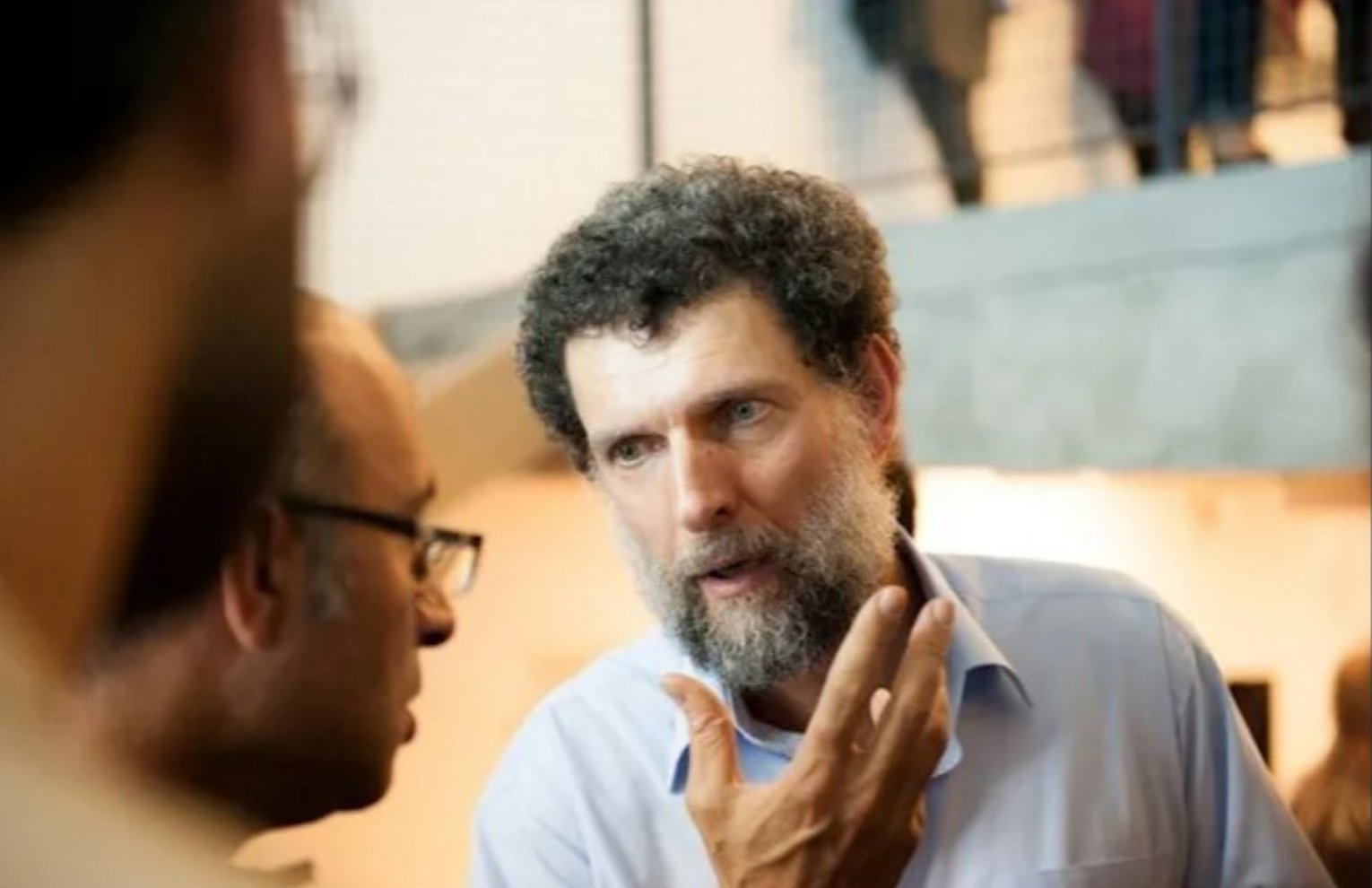

-132.jpg)
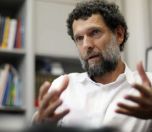
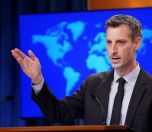
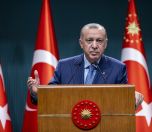

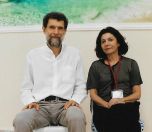
-132.jpg)
